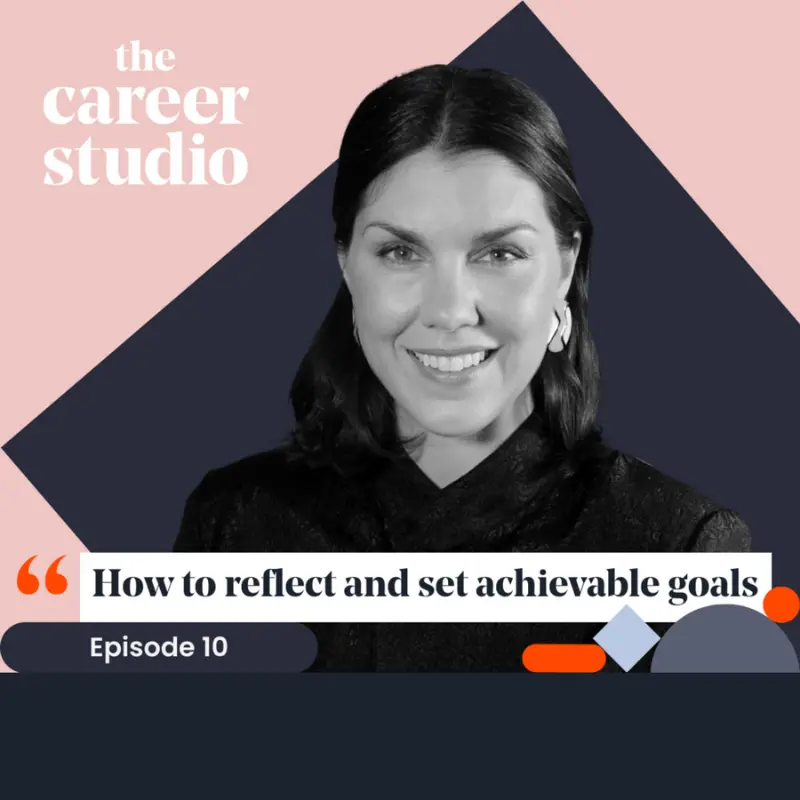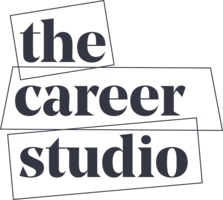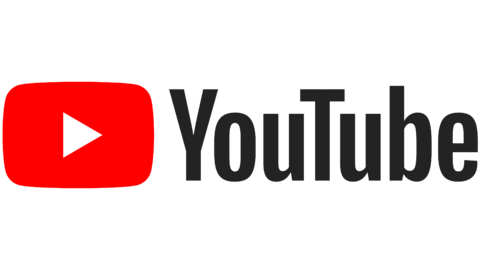How to reflect and set achievable goals

I consider the week between Christmas and New Year’s to be the best week of the year. The festivities are over, the socializing has calmed down, work is typically slower and we have these precious few days to be a bit quieter and reflect - on the past twelve months and the next twelve months.
A coach doing a podcast about reflection and goal setting is pretty obvious but I’m doing it anyway. This episode is meant to be used as a structure to support you in taking advantage of this time of year in a simple and intentional way.
In this episode I cover:
- How to manage your mindset for growth and goal setting
- What questions and setting I use to reflect and set intentions
- How to set New Year’s Resolutions that actually stick
- The Japanese principle of ‘kaizen’
Are you ready to create an energizing career you love?
You can create a career that is simply an extension of who you are and how you want to live your life. If this sounds like what you’re after then schedule a consultation. We'll get to the bottom of what's going on for you. And exactly where you need to focus to bring your career and life into alignment. It's free!
For more from The Career Studio
Transcript
Welcome to the career studio podcast, where we boil down the noise and focus on the core concepts, essential for building an energizing career you love. One that is simply an extension of who you are and how you wanna live your life. Anyone can do it. It's just a matter of knowing what to focus on.
Hey guys, this is my 10th episode and I can definitely say that after 10 episodes I've learned a lot about how to create a podcast and I've still got a lot to learn. I think one of the big things I've realized is that, and this is very typical for me, is that I, I've put too much pressure on myself to have the podcast be a super accurate reflection of my ideas, right?
That the articulation of the ideas is perfect. And from that perspective, these episodes have taken me so long to create in a way that's really unsustainable. And then actually a friend of mine from college commented that she felt like my personality wasn't coming through as much in the episodes. And I think certainly in these ones where I'm not talking to other people, that's, that's what gets lost when I spend so much time trying to craft the language so specifically.
So with the ambition of having these be much more manageable for me and also communicating who I am and and having you feel more like what it's like to coach with me when I'm talking to my clients. I have taken a new approach to writing these, and this is the first episode that I'm trialing this new approach with.
So, you know, one of the big things I tell my clients is getting comfortable with this idea of B minus work. This wasn't an idea that I invented. It's, it's something I've taken from my coach. But, um, the idea of B minus work is that being comfortable with it not being perfect, right? So that you can get more done and move on with your life.
And obviously in school you're striving for the A, but actually in life, getting comfortable with B minus is really the A. Because if you can get comfortable with B minus, that's how you can do so much more. As you can get through things, produce things, balance all of the areas of your life that need attention, if you're constantly striving for A's you're gonna get F's in other places in your life.
So I've really taken this idea of B minus work to heart in, in this episode as well. And the other thing I implemented for creating this episode that is something I also tell my clients is, I gave myself a time limit. I said, I'm only gonna spend 90 minutes writing the content for this episode, and then I'm gonna record it.
And so that's what I'm doing. So welcome. Let's see how this goes. This episode is about the best week of the year, what I consider the best week of the year, and when this episode will be released, which I think is the 27th of December. We will be in it .The 27th, the 28th, the 29th, the 30th. These four days I consider to be pretty glorious because, you know, Christmas or the holidays in general, the festivities, they're over and New Year's Eve if you celebrate it. I try not to as much as possible.
New Year's Eve is, is still days away. and work is usually slow. Uh, or if you're in a more forward thinking organization, you might even get off the week between Christmas and New Year's, so there's less on your plate. And so I think these are really luxurious days where you can spend more time with yourself where you can slow down, where you can reflect, where you can kind of do a lot of nothing, maybe see less people. I'm usually overdosed on seeing people by this time, and I think it's the perfect time to reflect on the year and set intentions for the next year. And so I wanted this episode to support you in doing that. And talk a little bit about how I think about reflecting on the year and how I think about planning. What's important in 2023, and give you some motivation and structure to do that. So let's get into it.
In general, I think the end of the year can be pretty confronting. It's normal with this kind of transition, right? A whole year has passed. You're about to enter another one. There's your age to think about as well, and I know that people listening to this episode will be in all sorts of different mind states. So maybe you're really proud and happy and you've had an incredible year and you're in a really good place. And if you are there, That is awesome and you should bask in that and really take that feeling in. And the exercises I'm gonna talk about are relevant no matter what head space you're in. However, I think most all of us are human, which means we have a human brain that has a tendency to focus on the negative.
Okay? So it might, you might find yourself, Maybe fixating on what you haven't done or haven't achieved, or even if you're not fixating it on it, just focusing on that narrative more than a positive narrative. And that's normal. And that's fine, right? I think there's also this cultural obsession that we have with not failing, right?
I think we have this perspective that life should be, a wide open street with green lights and beautiful vistas and no traffic, and a perfect Y equals X slope that ascends towards a summit, et cetera. Obviously, this is a fantasy. Life is full of twists and turns and traffic, and red lights and detours. This is totally normal. And I like to remind myself that any story worth telling has obstacles, right? It would be super boring if the hero didn't have to slay the dragon. No one would go see a movie where someone's life just went from strength to strength, and they never had anything to overcome. Everything was easy, happy clappy. There'd be no drama. There'd be no intrigue. No one would pay to see that or read that, or listen to that. that'd be super boring.
So if your life in any way feels uncomfortable, if you're not where you want to be, if you've had a disappointment, if you feel like you're striving for something and you're not there yet and you feel frustrated about that, if you feel lost, if you feel burned out, if you feel confused, I think it's really helpful to remind yourself that that's normal, and this means that you are living a good story.
A normal story where you have challenges you have to overcome, someone's gonna pay to go to your movie because you have challenges, and I tell you, you're gonna figure them out, right? Like the other thing I like to talk about is that in life, right, there is no constant green lights and open highways. You have to bump up against what doesn't work in order to figure out what does.
How else do you realize what your preferences are and what matters to you without encountering stuff that rubs you the wrong way? Also, you're a human being who's always evolving and what worked five years ago probably doesn't work now, and that's so normal. I think I wanna normalize this idea that you change, your priorities change, and so your career and your life is constantly going to be, in creation, in flux. That's why I called my business the career studio, because you're constantly adjusting what fulfilment and happiness means to you.
So I, I wanna normalize in saying all of this, any sort of feelings that you have that feel uncomfortable; confusion, feeling lost, feeling disappointed, feeling frustrated, feeling bored. This just means it's time for the next evolution. It means it's time for you to meet and work through your challenge. So embrace where you are in your story, whether it's great, whether it's medium, average, neutral, is what I'm trying to say, or whether it's uncomfortable and a challenge.
Accept it with open arms, discomfort, dissatisfaction. Doesn't mean you've messed up, means you're living a normal life. Even an interesting life, someone would buy your story. Now you have some challenges to overcome and be compassionate. Be compassionate for yourself in this moment. Love where you are. You don't have to, when I say love where you are, it doesn't mean you have to think this is the best place to be.
But if you resist against your reality, you're going to make it much harder to move through whatever you're working through than if you embrace your reality. So this is what I mean, love where you are. It's normal. Life is a 50 50 of positive and negative experiences and emotions. So buckle up.
I think the other thing I'd say here, just in thinking about the new year and what you want and setting goals for yourself. The most important thing to focus on is believing that whatever you want for your life in 2023, believe that's possible. Whatever you're aiming for, believe you can do it. and for everyone who's listening to this, who's contemplating a, a career adjustment or transition in some way, know that you can absolutely have the career in life you want. You can feel energized at work. You can feel like work is a great fit for the person that you are, while also affording you the life, the lifestyle that you want.
You can feel like what you do professionally is a good use of your one precious life on this planet. Whatever you're longing for, it's possible, and creating the mindset that it's possible helps you get there as fast as possible. Because if you don't actually believe it's possible for you, or if you're constantly hedging your bets, you're not going to think creatively when things get challenging, and they're always going to get challenging.
So if you believe it may be not possible and you're hedging your bets and you don't really wanna go all in, then as soon as it gets hard, you're gonna use that as the excuse that it's not possible or to quit whatever. If you believe it's possible, you're going to think creatively. You're going to work to try and make it happen.
So before you do any goal setting, You wanna get your head space in a place of what I want is possible. It really is. I never thought I'd be an entrepreneur doing what I'm doing, running a podcast, but I believed it's possible and I made it possible for myself, and I hope to be saying similar things in a few years time about the new goals that I have.
And I'll just say from a career perspective, everything you need is gonna be in this podcast. All the concepts, all of the insights. I know it can be overwhelming. Where to start, what to pay attention to, what to ignore. There's really four fundamental areas to focus on. I am going to bang the drum on them again and again and again and again in this podcast. So, something else to remember. You've got this. and you can make it happen.
Okay, so that's just a little pep talk from me. You know, reflection, intention setting. It's so obvious, right? It's very, it kind of is almost trite, but it's important. It really works. And my guidance is don't make it too elaborate. Make it simple on yourself.
And I'll give you some very simple questions and then change your scenery, get out of your house or your routine. For me, I like to get into nature. I live in New York City, so this is really refreshing for my mind, my body, my soul. But it could be anything. Could be a café. You could rent a hotel room for the night.
You could sit in a place you rarely sit in your home. It could be anything, but shake it up. Get somewhere that feels different to do this reflection. So keep it really simple. I have five questions. Looking back on 2022, the first question is, what am I proud of? It's really important for us to acknowledge what we've achieved.
Our mind always really goes quickly onto what we have to do next. And once we've achieved something, it almost becomes so much a part of who we are that we forget that it was a milestone. Whenever I complete with my clients, I have them do something to celebrate, you know, celebrate the end of all the work they did together and everything that they've achieved.
So look back and acknowledge yourself. What are you proud of having done? Over the past year. Actually, I wanna add here that there was a woman I met once on one of my coaching trainings who every time she hit a milestone, achieved something that she was proud of. She bought herself a donut and she would take a picture of that donut and describe and post it to her website and describe the donut and describe where she bought it and what milestone she achieved .So she could look back at this record of all these donuts that she had and what thing that she did in her life that she was proud of. I wish I remembered her name now, but it's not coming to me. But I always think about that. So important to remind yourself of all the things that you've achieved.
And take a moment to celebrate that and be proud before moving on to the next goal. Otherwise, you're always in this perpetual state of the next thing, the next thing, the next thing. And you forget to be proud of the person that's growing and has achieved the thing. Two, what am I grateful for? Gratitude cultivates a really positive mindset and allow looking for the good helps mitigate the negative tendencies our brain has, and I think often grounds us into what's actually important.
Three. What was hard? Acknowledging that you did some hard things, you went through some difficult experiences. Giving air time to what was difficult or painful, acknowledges those uncomfortable feelings. It can be the tendency to skip over those because we don't wanna remember them. We wanna brush them under the rug, but then that tells us that our feelings aren't valid or it doesn't give us the airtime we need to to really process our feelings.
When you reflect on what's hard, it's you're also allowing yourself to process the uncomfortable emotions and, and sit with that experience and shine a light on it for yourself. Acknowledging hard things is important. And then four, what did I learn? Right? All those hard experiences and everything from the year is gonna have taught you something.
And what you learned hopefully will inform your future actions. So I think it's, it's great to capture that. And then I have a really simple last question, which is, what are my top three goals for 2023? I like to keep it really short. I don't wanna get too overwhelmed with a million things. I also like to give myself constraint.
I have a tendency to overcommit and wanna do a million things. So if I really force myself to pick, it shows me what's actually really important and allows me to focus more. And I think the hardest part about prioritization is saying no to all the things that you also want to do, because I, you have a million goals.
and you can't do them all. So yeah, I really like the constraint of what are my top three goals, and that's basically it for my top three goals. I'll do work of mapping out what I need to do broadly to achieve them. Kind of some of what are the broad actions that need to happen and, and by when. And then I'll get very specific about what needs to happen in January to kick off those top three goals.
What I literally need to do as like a to-do, and I will allocate how much time that's gonna take, and then I will actually put it in my calendar so that I have specific things to get the ball moving right off the bat. So just to recap those five questions, so you could write them down, maybe pause now and get out a pen or queue up a note on your phone.
The five questions are. One, what am I proud of? Two, what am I grateful for? Three, what was hard? Four, what did I learn? And five, what are my top three goals for 2023? Okay, so that's, that's my structure. And then a few more things to think about in terms of writing goals. One, make them specific and measurable.
You wanna ask yourself, how will I know that I've achieved this? Secondly, there's a Japanese principle called Kaizen, which I like to talk a lot about when doing new things, creating new habits. So if you, if you have a goal, let's say, of going to the gym five times a week, but currently you don't go at all and you don't exercise at all, don't start off by making your goal going to the gym five days a week.
I would start off by making your goal, like exercising at home once a week or going to the gym once a week for 20 minutes. Kaizen is actually even more minuscule than that. Kaizen would be like, you know, if you wanna go to the gym five days a week for a week, your goal is to get your gym clothes on, right?
And just put them on once a day for five days. And then if you can get into your gym clothes once a day for five days, then the Kaizen principal would say, okay, then the next week you get in your car. Right? So you put your gym clothes on and you get in your car for a week. So it, it's like these almost microscopic habits, actions rather, that feel so little at the beginning that they're easy to do, but pretty soon it's very normal for you to be putting on your gym clothes and getting in the car that that part is easy. And then you have to just drive to the gym. Right? And then you could add on little by little by little.
You know, I'm gonna walk on the treadmill for five minutes and then I'm gonna go home. I mean, you probably do more, but my point is trying to explain the micro steps of the Kaizen philosophy.
The reason so many New Year's resolutions fail is because people say" I have to go five days a week". You know, maybe they go five days a week for two weeks, but then they can't keep it up.
And then the first week that they don't keep it up, they're like, oh, well f*ck this. Like I can't do it. And then they give up, because they didn't achieve this like huge goal, but is so far away from the person that they are, they didn't give themselves the chance to grow into that person. So what I really like about this Kaizen philosophy is it these incremental steps allow you to grow into the new person.
So keep that in mind as you're thinking about what you wanna do each week to move towards your goal. The other important part of this, Is expecting that you are gonna mess up loads of times. Like if you're trying to go to the gym five days a week, there's gonna be a week where you don't go at all two weeks where you don't go at all.
Don't make that mean that you can't do it. It's normal that you didn't do it. Just recommit. That's the main thing. Recommit to your goal. Recommit to trying again and learning what didn't work. So I'm just gonna continue on this gym example. If you put your workouts at 6:00 AM but you're just, you can't get outta bed at 5:30 to get to the gym for six, then maybe it's too early and you need to do it later.
This is actually something that happened to me. I used to try and be this workout person in the morning. and I had to massively move the timings of that for myself. I mean my, in an ideal world, I would be up at like 4:30 and I would work out in the morning because I just loved the idea of being up to watch the sunrise, kind of being in that peaceful time before the world wakes up, kind of getting stuff in before the day starts.
I had this vision of slightly born out of maybe a desire to be uber productive, but also this desire to kind of have this peaceful time to myself. And I had this whole idea that that was someone I could be, but I had to come to terms with the fact that my body clock is not structured that way. My body kind of wakes up at seven and I'm very slow in the morning, so I had to adjust my schedule accordingly.
So learn from what's not working and adjust and recommit with that adjustment, right? So, okay. I learned that if I don't put my gym clothes out right next to the foot of the bed, I'm not going, like that's a hurdle and it takes me longer. So this week I'm gonna try it where I put the gym clothes out at the foot of the bed, right?
And then try that for a week and see if it works. And if it works, great, then you can add it. If not, you can try something different. But the name of the game in, in creating new habits. Which are often goals for the new year is just recommitment and, and the expectation that you will mess up. And it doesn't mean that you can't do it.
And even if you don't do the thing you wanted to do for weeks, it doesn't mean that you can't do it. Just keep recommitting. It took me like a year to be someone who went to bed at 10:00 PM and now I'm super used to it and I kind of crave that, but. I had to really work on it to become that person. So make your goals specific and measurable.
Remember, Kaizen incremental steps towards your goal. Microscopic rather, microscopic, incremental steps towards your goal. And stay committed. It's okay if you fail, if you don't do the thing you wanna do. In fact, expect that you're not going to and just stay committed. Okay? Those are my musings in my new approach to recording these podcasts.
Have a wonderful best week of the year. Listen to your body. Do what it tells you to do, which is probably rest. Be kind to yourself. Believe in yourself, and I will see you in 2023. Have a good one.
Hey, if you're ready to create an energizing career you love one, that is simply an extension of who you are and how you want to live your life. Then I wanna invite you to schedule a consultation. We'll get to the bottom of what's going on for you. And exactly where you need to focus to bring your career and life into alignment. It's free. Just head on over to thecareer.studio/schedule to find a time that works for you, or if you're enjoying and getting value from these episodes, I'd love you to leave a short review on whatever podcast app you use.
This helps other people like you find and get value from the podcast too.



